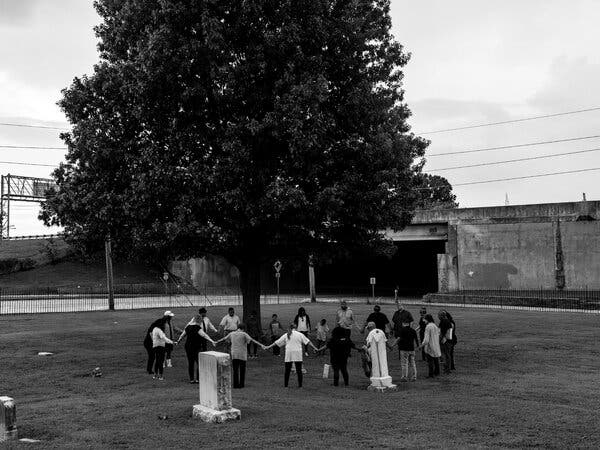The News
The mayor of Tulsa, Okla., announced on Thursday the creation of a commission tasked with developing a plan for reparations for the Tulsa Race Massacre, one of the worst racial attacks in U.S. history. The commission will study how reparations can be made to survivors of the massacre and their descendants, as well as residents of North Tulsa.

Why It Matters
During the 1921 massacre, white mobs burned Greenwood, a prosperous neighborhood known as Black Wall Street, to the ground. As many as 300 Black people were killed, hundreds more were injured, and thousands were left homeless. City officials, historians and the courts acknowledge that the massacre has led to generations of racial inequity in Tulsa.
Calls for reparations in Tulsa are longstanding and have resulted in apologies, a scholarship program and other actions, but not direct financial redress.
The last two known survivors of the massacre, now centenarians, have pursued reparations through the courts, but the Oklahoma Supreme Court dismissed their case in June.
Two reports — one from a commission created by the State Legislature in 2001 and one by a group of Tulsa residents in 2023 — recommended reparations, including financial compensation. The commission announced Thursday, named the Beyond Apology Commission, follows the 2023 report’s calls for the city to create a group to examine and carry out a reparations program.
Mayor G.T. Bynum, a Republican, has signaled that he wants this body to make recommendations that would result in tangible action. He wrote a social media post this week that the commission is not intended to be merely a “study group.”
He also noted that part of the group’s mission is to produce a plan for a housing equity program by the end of November. (The mayor, who created the commission by executive order, is not seeking re-election, and his term will end in December.)
Funds that could be used for that program have already been approved by voters, the mayor said.
The debate over reparations has at times divided the city. In 2021, a dispute over who should compensate the survivors and their descendants preceded the sudden cancellation of an event commemorating the 100th anniversary of the massacre.

